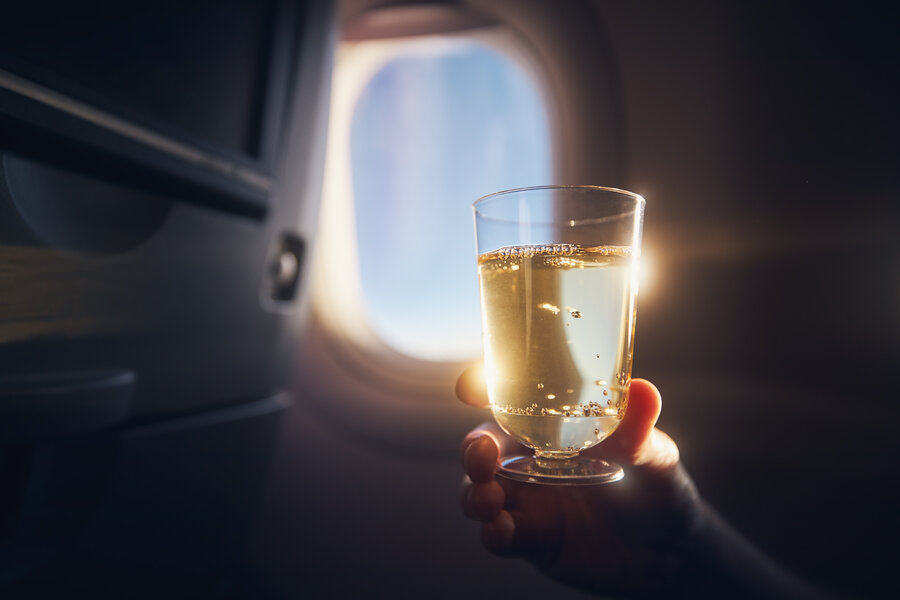Every young traveler knows that stepping outside of the United States and heading, for example, to Europe means that alcohol restrictions can be a little more lax. While the US doesn’t allow anyone under 21 to consume alcoholic beverages, most European countries allow you to drink as early as 18 and, in some cases, even 16, with some restrictions.
One might wonder, then, what the rules are when it comes to flying because, technically, you’re in the air. Can Americans drink on US-based carriers? What about foreign carriers? To help young travelers navigate this aspect of international and domestic travel, we asked travel experts about the rules.
Can you drink before 21 on US-based carriers?
In short, not really.
“In general, when flying on a US-based carrier (think the big three, Delta, United, and American), you are still subject to the US drinking age of 21,” Katy Nastro, travel expert at Going, said.
That means that, even if you’re flying and are not technically on US soil, US-based carriers tend to respect the rules of their country. So, generally speaking, no mimosa for you if you’re underage—Sorry!
What about international carriers? Can you drink before 21 on foreign airlines?
According to Nastro, you might have more luck if you fly on a non-US-based carrier, with some restrictions to keep in mind.
“When you are traveling on a foreign carrier and have left US airspace, things become a bit different,” Nastro explains. “Foreign carriers likely abide by their home countries’ laws around alcohol consumption—For example, an 18-year-old can have a beer on a British Airways flight bound for Spain.”
However, it’s worth noting that it’s not always such a straightforward rule. As Nastro points out, some airlines don’t serve alcohol at all, so it is best to check with the carrier before even boarding the flight. Additionally, the age requirement for alcohol consumption may vary depending on the airline.
Always remember to bring a valid form of identification with you. Your passport will obviously do the trick. “All airlines reserve the right to request personal identification to check your age,” Nastro said, ” regardless of their policies.”

